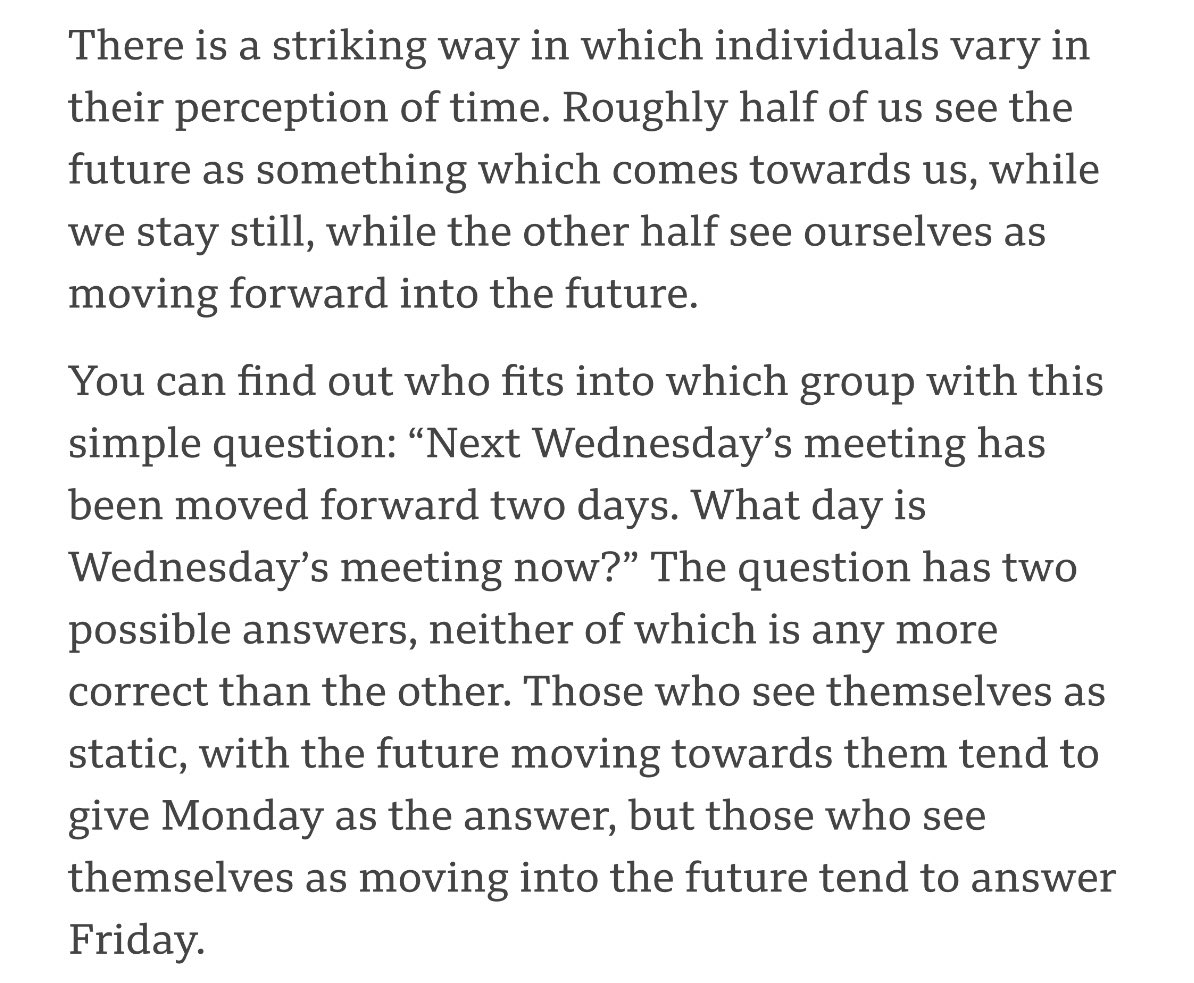Answer the question below, and only *then* read the subsequent tweet for context.
"Next Wednesday& #39;s meeting has been moved forward two days. What day is it now on?"
According to the research described in this @claudiahammond story (via @davidbauer newsletter), the answer can tell you how you perceive the passage of time.
Really interesting, and something I& #39;d never questioned before https://www.bbc.com/future/article/20200520-why-lockdown-life-feels-like-its-going-faster">https://www.bbc.com/future/ar...
Really interesting, and something I& #39;d never questioned before https://www.bbc.com/future/article/20200520-why-lockdown-life-feels-like-its-going-faster">https://www.bbc.com/future/ar...
It also feels like this means "clocks go back" and "clocks go forward" might not be the best shorthand to use for moving in and out of daylight saving time  https://abs.twimg.com/emoji/v2/... draggable="false" alt="🤔" title="Thinking face" aria-label="Emoji: Thinking face">
https://abs.twimg.com/emoji/v2/... draggable="false" alt="🤔" title="Thinking face" aria-label="Emoji: Thinking face">
Curiouser and curiouser @davidbauer https://psycnet.apa.org/record/2019-17783-006">https://psycnet.apa.org/record/20...

 Read on Twitter
Read on Twitter



